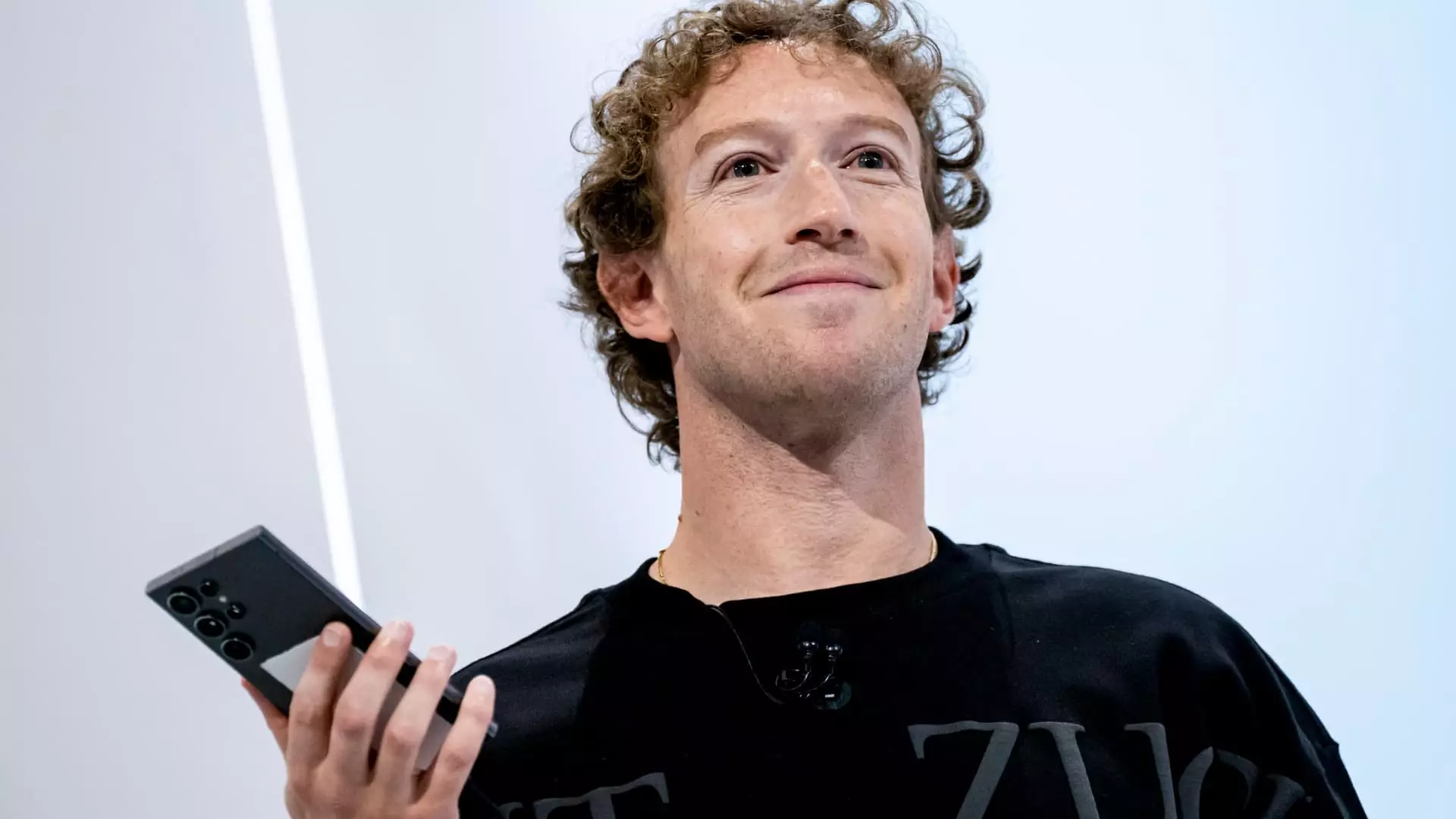In a recent podcast with Joe Rogan, Meta CEO Mark Zuckerberg brought forth some intriguing insights regarding the interplay between government influence and social media’s role in public health discourse, particularly concerning Covid-19 vaccinations. This conversation sheds light on the complex dynamics at play as platforms like Meta navigate pressures from government entities while managing the flow of information related to vaccines.
Zuckerberg’s claim that the Biden administration exerted pressure on Meta to remove content discussing potential side effects of Covid-19 vaccines raises significant ethical and operational questions about content moderation in the digital age. He articulated a belief that while there is a strong push for the advancement and acceptance of vaccinations, there is an equally concerning push to suppress dissenting views that may hold legitimate concerns. The dichotomy he presents—being both supportive of vaccine rollout and critical of censorship—reveals the tension social media executives face in balancing public health initiatives against free speech rights. The implications of these pressures are profound, extending beyond the walls of Meta and influencing wider discussions about transparency and censorship in digital spaces.
In the context of his dialogue, Zuckerberg also announced Meta’s pivot away from third-party fact-checking toward a community-driven approach called “community notes.” This shift indicates a significant strategic change, aligning closer to other platforms like X, and suggests a movement towards democratizing the truthfulness of information shared. However, this raises questions about accountability and reliability. While user commentary can enrich the discourse, it could also proliferate misinformation if not managed carefully. This approach could either empower citizens to engage more critically with information or potentially muddy the waters if unverified claims gain traction.
President Biden’s public criticism of Meta’s new policy highlights the contentious nature of social media’s role in information dissemination. His statement reflects a concern that unchecked misinformation can have serious repercussions, especially concerning public health. This critique is emblematic of broader anxieties regarding the responsibility and accountability of tech giants in moderating content that directly impacts societal health and safety. The notion that a “billionaire” can unilaterally shift content moderation strategies to reduce fact-checking efforts is alarming to many, framing the issue as one of democracy, safety, and philosophical integrity in the digital landscape.
Zuckerberg’s past reflections on the pressures exerted by the Biden administration to censor content also paint a portrait of an executive grappling with the ramifications of corporate decisions made during an unprecedented global crisis. His regret regarding some actions taken at the behest of government entities underscores a vital conversation about corporate responsibility and ethical considerations in the tech realm. When companies yield to governmental pressures, they must navigate the moral implications of their decisions—especially regarding information that is “inarguably true.” The lines between corporate interests and public welfare become increasingly blurred when profit motives and regulatory compliance clash with ethical considerations of truthfulness and representation.
Zuckerberg’s comments about the U.S. government’s inadequacies in protecting the technology sector from foreign regulation open another layer of discussion regarding competition and innovation in a globalized world. With increasing regulatory scrutiny from international bodies, the American tech landscape could face significant challenges in maintaining its competitive edge. As Zuckerberg optimistically links his perspectives on technology regulation to potential future shifts under President Trump, it suggests a hope for reduced constraints that could foster innovation and growth. However, this optimism must be tempered with the reality of global regulation’s effects on corporate strategies and consumer trust.
Zuckerberg’s conversation with Rogan serves as a reflection on the precarious balancing act tech companies must perform. Navigating government influence, public health messaging, misinformation, and global regulatory pressures encapsulates a complex and evolving challenge for social media platforms. The ramifications of these dynamics will be critical as society continues to grapple with the implications of technology on democracy, health, and public discourse in a post-pandemic world.

